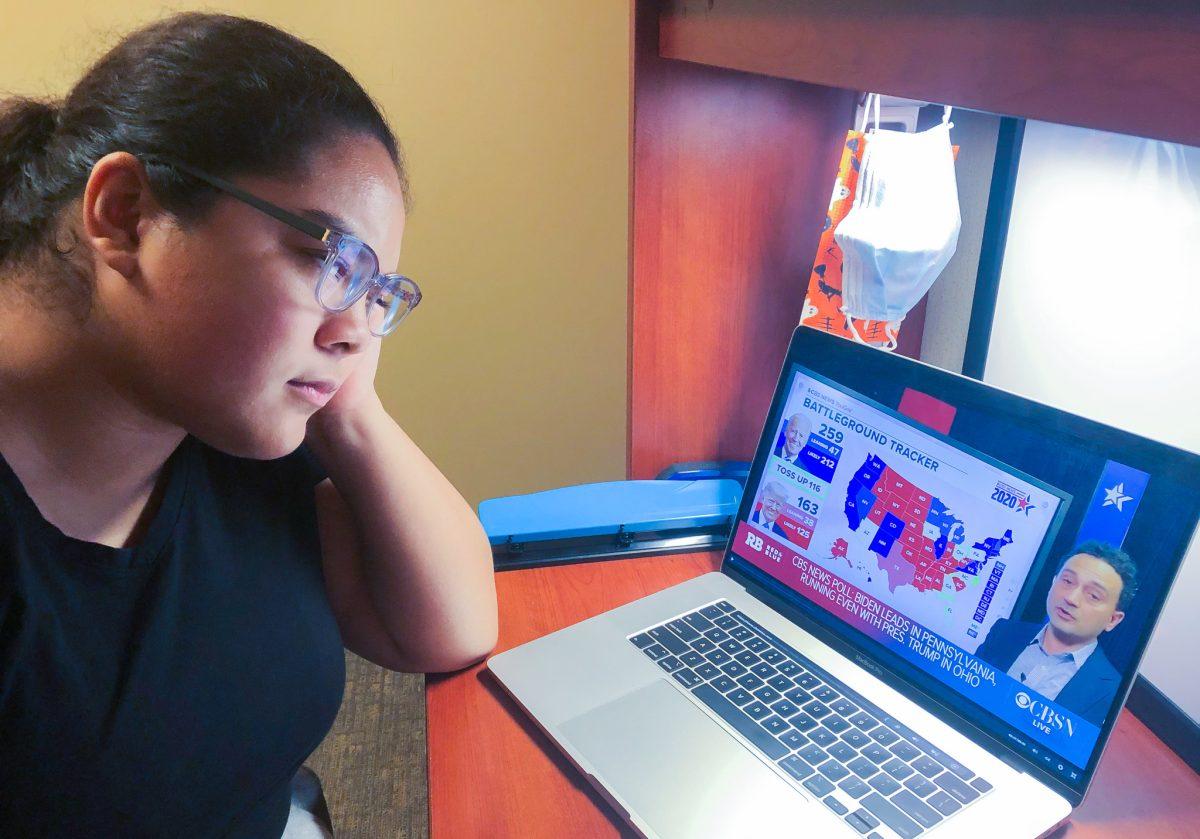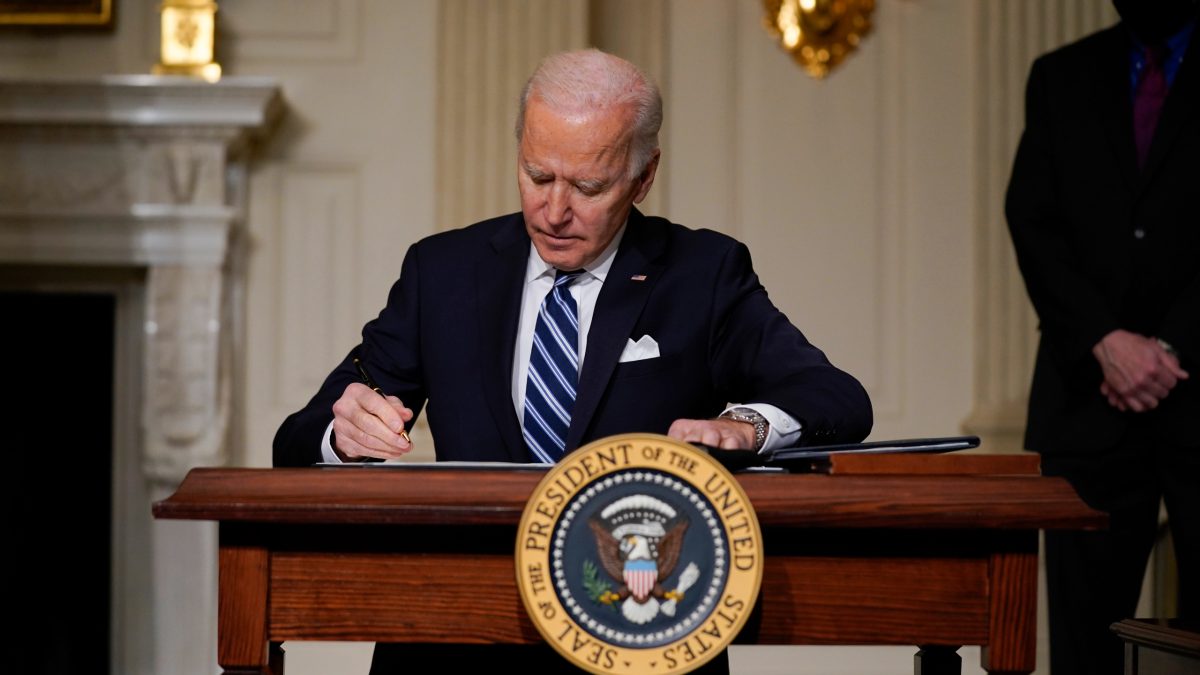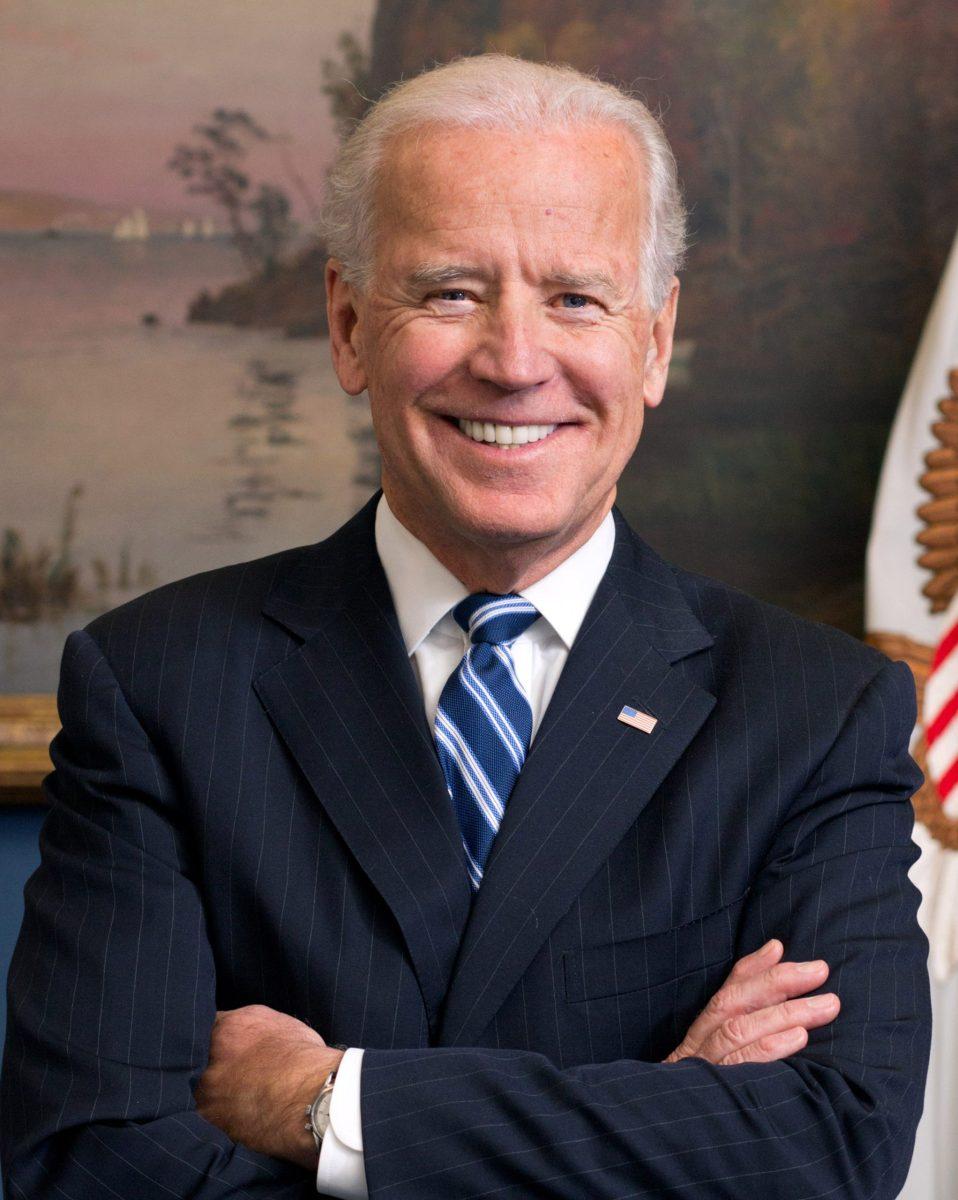“I was in the car driving when I heard the news,” said Alexandra Griffith, senior Biomedical Engineering student, regarding when the election was called in favor of former Vice President Joe Biden, securing him the presidency. “And I heard it, I thought, okay, this looks official. But it didn’t feel official yet.”
Many students shared this feeling of drawn-out hesitance while following the results of the election. For four long days following election night, mail-in ballots continued to be counted. Many watched as several states slowly began to flip electoral college votes in Biden’s favor.
Dillon McCormick, junior Mechanical Engineering major recalled, “Oh my gosh, when was election night? That felt like months ago. This whole week has just been so long and drawn out.”
Joseph Fiore, fourth year Computer Science major recalled watching the maps on election night. “In some ways, it felt sort of resolved. I was like okay, so [Biden] lost? I’m just going to go to sleep. So I went to sleep a bit later than normal. But then I woke up to Wisconsin and Michigan flipping and was like, oh God, what happened? After that I was sleeping a bit later. I remember on one night I went to sleep at 3 AM because I was watching the maps thinking, I’m sure Nevada’s going to post something by the end of the night, right?”
By contrast, Ivan Rivera, first year Computer Science student, spent his election day at the polls in Hudson County. After learning that many polling locations were in need of poll workers especially given COVID-19 worries of putting people at risk of getting sick, Ivan said “I felt like I owed it to a lot of people who have put in the work to work the polls in previous years.” Ivan felt like he could have expected the drawn-out results following election night, especially hearing conversations between voters at the polls who didn’t wholly trust voting by mail. “I could hear a lot of people saying this. They definitely bought into mail-in voting being fraudulent or unsafe, which is very unfortunate.”
Anxiety continued in days following, in several different ways. “I was able to get schoolwork done, but only because I’m an anxious worker,” said Fiore. “So even though I was nervous, I didn’t shut down, I just worked through it, which meant I got like two weeks ahead on all of my classes.”
Meanwhile, Griffith said “the stakes felt a lot higher than when I voted in 2016. I found out last minute that in my district, you were only allowed to use voting booths if you were disabled, otherwise you had to get a provisional ballot. I was able to drop off my ballot from the night before, but I was surprised that wasn’t communicated as clearly. I always like to be a part of the democratic process. But for the first time, I was worried, and thinking, like, was my vote going to get counted?”
“I had the maps open all week,” Griffith continued. “I had like three permanent tabs open and I was checking them all the time. I know a lot of my friends were like, I don’t even want to look until it’s done. I feel like that would have been healthier for me, but I was glued, I was looking the whole time. I didn’t trust anything. I didn’t want to get my hopes up, even when things looked good for my presidential candidate… There was already so much stress from online schooling that I didn’t manage it very well. My brain felt like mush all week. I’m glad that the [humanities department and my HSS professor,] Professor See encouraged us to take the week off. All of my STEM teachers were like ‘We don’t care. Just get it done.’ But he was like, ‘no, this is obviously a huge issue. Take a week off if you need it.’”
McCormick shared these feelings. “This whole week has been pretty anxiety-inducing especially because the results were coming in so slowly. A lot of these races have been so razor-thin. I’ve just been looking at Twitter, and I haven’t done any actual homework in a while. I was going to do some actual work for my job this week, and I checked and saw that they gave me eight hours of work on election day. I was like, ah, going back to looking at election maps now.”
Rivera said he was more concerned with the House and Senate elections. “I was more focused on seeing more progressive people come in. One of the worst losses to see was McConnell winning reelection, and how Nancy Pelosi got reelected. Now I’m keeping an eye on Georgia.”
Following the call for Biden’s election to the presidency this Saturday, with 290 electoral votes behind him, many students shared a sense of hope but also apprehension for Biden’s upcoming presidential term.
“I’m happy that someone who ran on the message of hope and unity is getting elected. I think that’s a start. But the legacy Trump left behind is very much alive. Just because the man is out doesn’t mean what he brought with him is out,” said Rivera. “This election has strengthened my resolve to run for the House when I’m of age myself. Many people want progress, but too many politicians are only there to uphold the status quo. I want to fight for people who want stuff like Medicare for All and the Green New Deal rather than continue letting career politicians line their pockets with corporate money.”
“I felt relief, kind of?” said Fiore. “I feel very happy that he won the presidency. But Biden wasn’t my first pick. In fact, he was maybe my third to last.” Fiore hopes that Biden will help enshrine Roe v. Wade into law and that his opinion will shift to become pro-Medicare for all.
Meanwhile, Griffith hopes the U.S. will be able to reclaim our standing nationally and recover some of the relationships that have been seriously damaged in past years. “I also really hope that organizations like the FBI and CIA get thoroughly combed over to see how badly they were infiltrated, because I do feel like the door was opened for the last few years.”
“I guess my overall stance, if I were to sum everything up,” said McCormick, is “we still have a long ways to go in our country. I’m glad Biden got elected, but I can’t say yet that I’m hopeful about the future.”

































